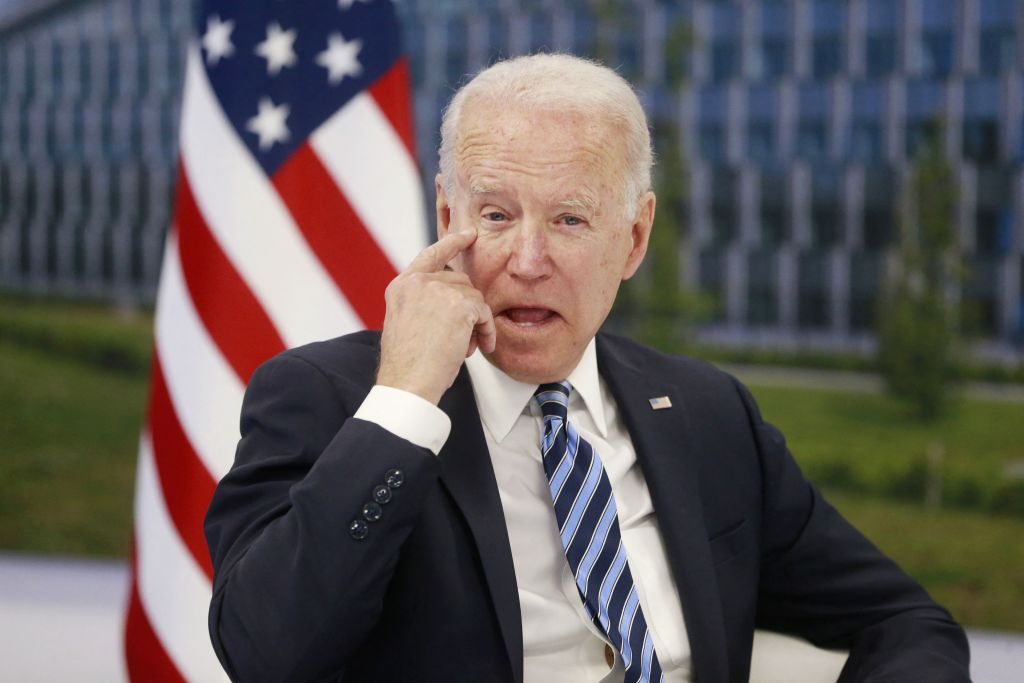My brothers, my sisters, hold it right there. Thank you. We’re missing a major point, howsoever understandably. All this media chitchat coupling Joe Biden’s political incapacities to his undoubtedly advanced age and slowing gait requires, in my estimation, some context. Nor do I suggest the president’s recently acquired case of Covid — from which we all pray he recovers speedily and fully — lends point and pith to the discussion.
I suggest that the problem with Joe Biden isn’t age as such, nor the infirmities that go with having lived back when Cokes cost a nickel and Ed Sullivan was king of TV. The problem is eyesight: specifically, what our president did with his eyes, or, rather, appears not to have done with them during a period of history whose effects are pulling his country apart.
No small number of Americans took in the mess that national life was turning into way back then. How’d young Joe Biden seemingly miss the whole thing, and the lessons that might have averted today’s social and economic pain?
It was as plain as the noses on Joe’s and my twenty-five-year-old faces, in 1967, that the countercultural revolt then ripping America apart was leading us to the place and time we now inhabit: a society fragmented and perpetually engaged in uncivil warfare; different demographics turning angrily against one another; our once-proud leadership class finding itself more and more bewildered, then unaccountably fearful, then reluctant, hesitant, apologetic. We were making a mess of ourselves back then. Our present president didn’t notice? Hmmm.
As a chartered member of the Biden generation — born ten months before our president — I confess to no surprise that things became what they did. The tumultuous 1960s ran inevitably out of breath, but over the coming decades regained their well-demonstrated dislike of the country’s norms and history, and its social arrangements. Alexandria Ocasio-Cortez would have fit in well with the crowds of students that massed against the Vietnam war and attacked campus buildings, seeking to bend establishments of all kinds to their will: to make ‘em jump when instructed in the evils of racism, sexism, and oppression. Whoever wielded authority up to, say, 1960 — why, it was clearly time to replace those old coots. The rap on America then, as more viciously now, was that our ideals and our performance didn’t match. We needed fresh blood; we needed leaders liberated from the delusions of the past.
And, well, we’re back where we left off in the Seventies, making establishments jump. Only we’re nastier about it now. We shout people down, get them fired, call for “defunding” the police, celebrate broadly the enemies of the society we have declared racist and unfeeling. The accomplishments of that society — like stomping racism into the ground and elevating women to once-undreamt of pinnacles of power — fail to protect the old lions from the unkindest accusations. We take their names off buildings, apologize fluently, with eyes lowered to navel-height, for shames they never knew were shames.
I can only assume our present president had his eyes on other matters at the time, like the amassment and maintenance of political power.
The state of America, in 2022, so it seems to me, is the direct result of the state America assumed, around 1970, as the Sixties expired: commitments to marriage and family on the wane, respect for the American past ebbing away, religion seen as just another social encumbrance, government assuming unprecedented authority over how we live and, more and more, what we think and what rights we claim.
If you were born in 1942, as both Joe Biden and I were, you didn’t necessarily have to notice how things, in the Yeatsian sense, were falling apart. The right not to notice was inferable from the American birthright.
Aha, nevertheless: if you saw in your future a personal role in the shaping of the American destiny, wouldn’t you — maybe — wonder where all these things were going, as well as whether a few of them didn’t require repudiation? Like the inclination, more popular now than ever, to see the federal government as the solution to all problems? Freedom and liberty as inferior to orders from the planners and like know-it-alls? Government as embodied wisdom and virtue, operating preemptively with your tax money?
Come the Eighties, Americans, as a collectivity, seemed to figure out that the breakdown of moral responsibility and the uninhibited growth of government didn’t always issue in happiness. They elected Ronald Reagan president, with instructions to put on the brakes.
Our present president was there. Did he fail to see what was going on? Or did he like the whole idea of what was going on? Because if he liked it, he ought to be thrilled at how much of the spirit of the Sixties transferred itself to the twenty-first century, with the gritty results we see every day: class warfare, criminals and no-goods widely favored over the enforcers of law and order, free thought and speech downgraded as pillars of the American way.
Ah, Mr. President, we were young, you and I. We remember, don’t we, the sight of our national foundations breaking apart amid calls — hey, you! everybody! — to do whatever the hell it felt good to do. You saw, didn’t you? Or very, very possibly not.


















